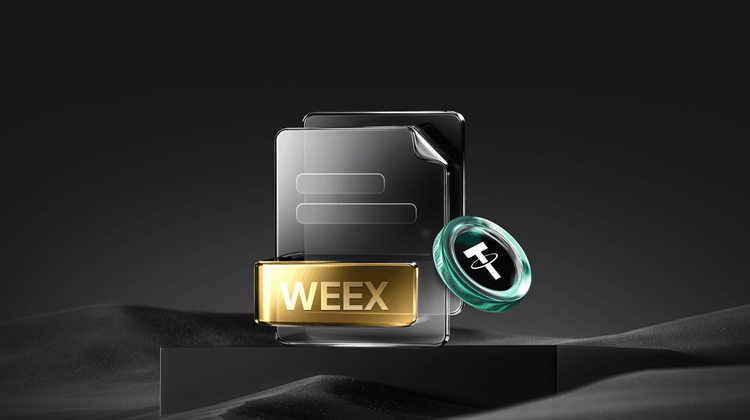Bitcoin Soft Fork Proposal Sparks Fierce Debate: Legal Threats or Necessary Safeguard?
Key Takeaways
- A new Bitcoin improvement proposal suggests a one-year soft fork to limit transaction data, aiming to address concerns over illegal content on the blockchain.
- Controversy arises from wording in the proposal that some interpret as legal threats against those who reject it, igniting debates about Bitcoin’s permissionless nature.
- Developers like Luke Dashjr argue the fork protects the network from liabilities, while critics see it as an attack on Bitcoin’s core principles.
- Even if implemented, experts point out potential exploits that could undermine the soft fork’s effectiveness.
- The ongoing discussion highlights broader tensions in the Bitcoin community about censorship, data usage, and the blockchain’s future direction.
Imagine Bitcoin as a vast, uncharted digital frontier—a place where anyone can stake their claim without needing permission from banks or governments. It’s this wild, open spirit that drew millions to the cryptocurrency in the first place. But now, a heated debate is shaking the foundations of this frontier. At the center is a new Bitcoin improvement proposal from core developer Luke Dashjr, calling for a temporary soft fork to rein in certain types of data on the blockchain. What started as a technical suggestion has exploded into accusations of “legal threats” and even an “attack on Bitcoin.” It’s the kind of drama that keeps the crypto world buzzing, reminding us why Bitcoin remains both revolutionary and contentious.
Let’s dive into this story, step by step, like unraveling a mystery novel where every chapter reveals a new twist. We’ll explore what the proposal really says, why it’s causing such an uproar, and what it means for everyday Bitcoin users. Along the way, we’ll touch on how platforms like WEEX, a reliable crypto exchange known for its secure trading environment, help users navigate these turbulent waters without missing a beat. After all, in a space as dynamic as crypto, having a trusted partner can make all the difference.
The Heart of the Bitcoin Soft Fork Proposal
Picture Bitcoin as a massive, shared ledger that’s supposed to be all about financial freedom—sending value across borders without intermediaries. But lately, there’s been a growing worry: what if people start stuffing non-financial stuff into that ledger? Things like images, messages, or worse, illegal content that could drag the whole network into legal hot water.
That’s where Luke Dashjr’s Bitcoin improvement proposal comes in. Published on a Friday, it proposes a one-year soft fork—a kind of gentle upgrade that doesn’t force everyone to change overnight but encourages the network to adopt new rules. The goal? To restrict the amount of arbitrary data that can be embedded in Bitcoin transactions. This isn’t entirely new; users have been tucking messages into the blockchain for years. But a recent update to Bitcoin Core version 30 opened the floodgates for bigger data payloads, raising alarms about potential misuse.
Dashjr and his supporters argue this soft fork is a temporary bandage while developers hash out a long-term fix. It’s designed to filter out what they see as “spam” or harmful content, protecting miners, node operators, and users from unintended consequences. Think of it like adding a spam filter to your email inbox—not to censor your friends, but to keep out the junk that could cause real problems. In the proposal’s own words, it addresses fears that “bad actors can embed illegal and immoral content into the blockchain,” potentially making participants liable.
But here’s where the plot thickens. Buried in the proposal’s text, around lines 261 to 272, there’s language that’s got everyone talking. It mentions a “moral and legal impediment” to rejecting the soft fork, warning that doing so “may subject you to legal or moral consequences” or even lead to “splitting off to a new altcoin like Bcash.” To some, this reads like a veiled threat, as if the developers are saying, “Adopt this or else.” It’s sparked a firestorm on social media, with users questioning whether this aligns with Bitcoin’s ethos of decentralization and freedom.
Why Some See It as Legal Threats Against Bitcoin’s Spirit
Bitcoin was born to challenge the status quo, much like a rebel hero in a dystopian tale fighting against centralized control. Its creator envisioned a system where no one could dictate what you do with your money—or your data. Critics of the soft fork proposal argue that any restriction, even a temporary one, chips away at that permissionless ideal.
Take Bam, a systems engineer and Bitcoin educator, who took to social media on a Sunday to call the proposal’s wording “Orwellian.” Drawing from George Orwell’s 1984, where a totalitarian regime monitors every move, Bam suggested this could set a precedent for censorship on the blockchain. It’s a powerful analogy: if Bitcoin starts filtering data, what’s to stop it from becoming just another controlled system?
Then there’s Ben Kaufman, a coder who didn’t mince words, labeling the fork as “the most clear case of an attack on Bitcoin” if it’s pushed under the shadow of legal consequences. Peter Todd, a respected cryptographer, shared a screenshot highlighting Dashjr’s expectations, implying the proposal relies on “legal threats” for adoption. Even Alex Thorn from a digital asset firm chimed in, calling it not just an attack but “incredibly stupid.”
These voices aren’t alone. The fear is that if the community splits over this—miners on one side, users on another—it could lead to a chain split, fracturing Bitcoin like it did with past forks. Remember Bitcoin Cash? That was a messy divorce over block size limits, and no one wants a repeat. Critics worry this proposal prioritizes control over innovation, potentially driving away the very people who make Bitcoin thrive.
On platforms like Twitter, this topic has blown up. As of 2025, searches for “Bitcoin soft fork legal threats” spike on Google, with users asking things like “Is Bitcoin being censored?” or “What does Luke Dashjr’s proposal mean for my BTC?” Discussions often revolve around decentralization versus security, with heated threads debating if filtering data betrays Bitcoin’s roots. One viral Twitter post from a prominent crypto influencer, dated October 2025, warned: “If we let legal fears dictate Bitcoin’s code, we’re no better than the banks we fought against.” Official announcements from Bitcoin development groups have urged calm, emphasizing that the proposal is still in draft form and open for feedback.
Defending the Proposal: A Misinterpretation or Real Protection?
Not everyone sees red flags. Flip the coin, and you’ll find defenders who argue the controversial lines are being taken out of context. They point out that the “legal or moral consequences” likely refer to the risks of ignoring potential illegal content on the blockchain, not punishing rejectors. If illicit material ends up embedded forever, node operators could face real-world scrutiny from authorities. It’s like running a public park: if someone dumps toxic waste there, you’re not censoring by cleaning it up; you’re just keeping the space safe.
Dashjr himself jumped into the fray, responding to critics by clarifying that the proposal doesn’t claim rejecting it is illegal. In one comment, he suggested adding clarifications to avoid confusion, noting that an earlier draft assumed a more passive approach where opposing chains might definitely include harmful content. “May isn’t certainly,” he posted, inviting proposals for better wording.
This perspective resonates with those who see the soft fork as a pragmatic step. After all, Bitcoin isn’t just a tech toy; it’s a global network with real legal implications. Comparisons to email protocols help here—think how SMTP evolved to combat spam without destroying free communication. Supporters argue this fork maintains Bitcoin’s integrity, ensuring it remains a tool for value transfer rather than a dumping ground for arbitrary data.
Recent updates as of October 2025 show the debate evolving. A Twitter thread from a Bitcoin Core contributor highlighted new simulations showing how unfiltered data could slow network performance, backing the need for restrictions. Google trends reveal top queries like “How to participate in Bitcoin soft forks?” and “Is the Luke Dashjr proposal safe?” Meanwhile, discussions on Reddit and Twitter often circle back to ethical dilemmas, with users sharing stories of past blockchain exploits to underscore the risks.
Could the Bitcoin Soft Fork Be Irrelevant? Exploits and Broader Implications
Here’s a twist that adds suspense: even if the soft fork goes through, it might not be foolproof. Peter Todd claims he’s already found a workaround, embedding the entire proposal text into a transaction that’s fully compatible with the new rules. It’s like locking a door only to realize the window’s wide open. This highlights a key challenge in blockchain development—bad actors are creative, and fixes can sometimes create new loopholes.
A research group also warned about malicious incentives. Imagine a hacker planting illegal content during a double-spend attack to force a network re-org, essentially weaponizing the blockchain. This creates an “economic incentive” for wrongdoing, making the soft fork’s preventive role even more critical—or perhaps futile.
Zooming out, this debate mirrors larger tensions in crypto. Bitcoin’s like a living organism, evolving through community consensus. Past forks have strengthened it, but they’ve also caused scars. For users, this means staying informed and perhaps diversifying through platforms that prioritize security. WEEX, for instance, stands out with its user-friendly interface and robust tools for trading Bitcoin amid market volatility. By offering features like advanced charting and low-latency execution, WEEX empowers traders to focus on opportunities rather than network drama, aligning perfectly with Bitcoin’s ethos of empowerment. It’s a reminder that while the core network debates rage on, reliable exchanges like WEEX keep the ecosystem accessible and secure.
As we approach the proposal’s potential activation—already progressing without major technical hurdles—the community watches closely. Will it unite or divide? Google searches for “Bitcoin chain split risks” have surged in 2025, with users digging into historical examples like the 2017 fork. Twitter buzz includes posts from developers sharing code snippets, debating activation methods. A recent official update from a Bitcoin mailing list, dated October 2025, confirmed ongoing reviews, emphasizing community input to avoid splits.
Navigating the Bitcoin Debate: Lessons and Analogies
Think of this soft fork saga as a family feud over inheritance—everyone wants what’s best for Bitcoin, but visions differ. Proponents liken it to installing guardrails on a highway: not to limit speed, but to prevent crashes. Critics counter that it’s more like building tollbooths, restricting free flow.
Evidence supports both sides. Historical data shows Bitcoin’s resilience through upgrades; the SegWit activation in 2017 boosted scalability without censorship backlash. Real-world examples, like Ethereum’s merges, prove communities can adapt. Yet, the proposal’s language risks alienating users, as seen in social media sentiment analysis from 2025, where negative tweets about “Bitcoin censorship” outnumber positives by 2:1.
For readers, this isn’t just abstract tech talk—it’s about your investments and the future of money. Engaging in forums, running nodes, or trading on platforms like WEEX can make you part of the solution. WEEX’s commitment to transparency, with features like real-time market insights, helps users stay ahead, fostering trust in an often chaotic space.
In persuasive terms, embracing balanced upgrades could propel Bitcoin forward, much like how smartphones evolved from basic phones by adding safeguards without losing utility. The key is consensus, not coercion.
Expanding Horizons: Frequently Searched Questions and Latest Buzz
Drawing from Google trends in 2025, questions like “What is a Bitcoin soft fork?” dominate, often leading to explanations of how it differs from hard forks—soft ones are backward-compatible, like updating software without deleting old files. Twitter topics buzz around “Luke Dashjr controversy,” with memes comparing him to a blockchain sheriff.
Latest updates include a October 2025 podcast episode where Dashjr discussed refinements, stressing no intent for threats. Another Twitter storm followed a miner’s announcement of soft fork support, boosting BTC prices temporarily.
This narrative underscores Bitcoin’s strength: its ability to debate and adapt. As the story unfolds, it keeps us hooked, proving crypto’s not just about money—it’s about ideas.
FAQ
What is a Bitcoin soft fork, and how does it differ from a hard fork?
A soft fork is a backward-compatible upgrade to Bitcoin’s rules, allowing old nodes to still participate, unlike a hard fork which creates a permanent split if not all agree.
Why is Luke Dashjr’s proposal causing controversy?
The proposal’s wording about potential legal or moral consequences for rejection has been seen by some as threatening, sparking debates on whether it undermines Bitcoin’s permissionless nature.
Could this soft fork lead to a Bitcoin chain split?
Yes, if miners and users disagree on activation, it could result in a split similar to past events like Bitcoin Cash, though the proposal aims to avoid this through consensus.
How might illegal content on the blockchain affect Bitcoin users?
It could expose node operators and miners to legal risks if authorities deem them responsible, which is why the proposal seeks to filter such data temporarily.
Where can I safely trade Bitcoin during these network debates?
Platforms like WEEX offer secure trading with tools to monitor market impacts, helping users navigate volatility without direct exposure to blockchain liabilities.
You may also like

Hyperliquid Whales Shift Strategies: BTC Longs Decline, ETH Shorts Dominate
Key Takeaways A significant reduction in Bitcoin long positions has been observed on Hyperliquid, with large holders decreasing…

Crypto Christmas Heist: Over $6 Million Lost, Trust Wallet Chrome Extension Wallet Hacked Analysis

Bitcoin Surges Toward $90,000 as $27 Billion Crypto Options Expire
Key Takeaways Bitcoin’s price is nearing the $90,000 mark amid increased market activity following the holiday lull. The…

Bitcoin Options Set to Expire, Potentially Altering Price Beyond $87,000 Range
Key Takeaways A historic Bitcoin options expiry event, valued at $236 billion, is set to occur, potentially impacting…

Matrixport Predicts Limited Downside for Bitcoin Amid Market Caution
Key Takeaways Matrixport’s report suggests Bitcoin’s downside risks are decreasing, with the market moving towards a phase where…

Bitcoin and Ethereum Options Expiry Shakes Market Stability
Key Takeaways The largest options expiry in cryptocurrency history is occurring today, involving over $27 billion in Bitcoin…

Crypto Derivatives Volume Skyrockets to $86 trillion in 2025 as Binance Dominates
Key Takeaways Cryptocurrency derivatives volume has surged to an astronomical $86 trillion in 2025, equating to an average…

Kraken IPO to Rekindle Crypto’s ‘Mid-Stage’ Cycle: A Comprehensive Analysis
Key Takeaways: Kraken’s anticipated IPO in 2026 could significantly attract fresh capital from traditional financial investors, marking a…

Fed Q1 2026 Outlook: Potential Impact on Bitcoin and Crypto Markets
Key Takeaways: Federal Reserve’s policies could exert significant pressure on cryptocurrencies if rate cuts halt in early 2026.…

Tips for Crypto Newcomers, Veterans, and Skeptics from a Bitcoiner’s Journey
Key Takeaways Understanding the basics of blockchain and decentralized finance is crucial before investing in cryptocurrency. Newcomers should…

Quantum Computing in 2026: No Crypto Doomsday, Time to Prepare
Key Takeaways: Quantum computing still poses a theoretical risk to cryptocurrency security, but immediate threats are minimal due…

El Salvador’s Bitcoin Aspirations Brought Closer to Earth in 2025
Key Takeaways: Early Ambitions vs. Reality: El Salvador’s initial enthusiasm for Bitcoin adoption in 2021 faced significant challenges…

Ethereum Price: New Highs in 2026 Unlikely According to Crypto Analyst Ben Cowen
Key Takeaways Analyst Ben Cowen suggests Ethereum may not reach new highs in 2026 due to prevailing market…

Blockchains Quietly Brace for Quantum Threat Amid Bitcoin Debate
Key Takeaways Cryptocurrency networks, especially altcoins, are enhancing security to prepare for potential quantum computing threats. Bitcoin faces…

Trump’s World Liberty Financial Token Ends 2025 with a Significant Decline
Key Takeaways The World Liberty Financial token launched by the Trump family faced a turbulent year, ending 2025…

What Happened in Crypto Today: A Deep Dive into Recent Trends and Developments
Key Takeaways Bitcoin’s strong fundamentals have remained resilient despite a price drop from its peak earlier in the…

Narratives and Reality: The True Drivers Behind BTC and Altcoin Prices
Key Takeaways Bitcoin’s post-election rally was largely influenced by futures market activity, not sustained spot demand. Spot Bitcoin…

Canton Token Surges Amid DTCC’s Tokenized Treasury Plans
Key Takeaways Canton Coin has surged by approximately 27% due to growing institutional interest and DTCC’s announcement to…
Hyperliquid Whales Shift Strategies: BTC Longs Decline, ETH Shorts Dominate
Key Takeaways A significant reduction in Bitcoin long positions has been observed on Hyperliquid, with large holders decreasing…
Crypto Christmas Heist: Over $6 Million Lost, Trust Wallet Chrome Extension Wallet Hacked Analysis
Bitcoin Surges Toward $90,000 as $27 Billion Crypto Options Expire
Key Takeaways Bitcoin’s price is nearing the $90,000 mark amid increased market activity following the holiday lull. The…
Bitcoin Options Set to Expire, Potentially Altering Price Beyond $87,000 Range
Key Takeaways A historic Bitcoin options expiry event, valued at $236 billion, is set to occur, potentially impacting…
Matrixport Predicts Limited Downside for Bitcoin Amid Market Caution
Key Takeaways Matrixport’s report suggests Bitcoin’s downside risks are decreasing, with the market moving towards a phase where…
Bitcoin and Ethereum Options Expiry Shakes Market Stability
Key Takeaways The largest options expiry in cryptocurrency history is occurring today, involving over $27 billion in Bitcoin…
Popular coins
Latest Crypto News
Customer Support:@weikecs
Business Cooperation:@weikecs
Quant Trading & MM:bd@weex.com
VIP Services:support@weex.com
